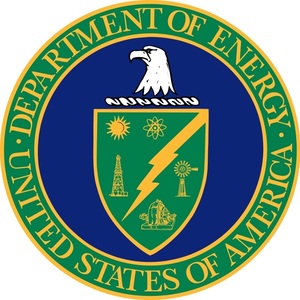DOE seeks input on ways to decarbonize US manufacturing sector

February 3, 2022
BY Erin Krueger
The U.S. Department of Energy’s Advanced Manufacturing Office issued a request for information (RFI) on Jan. 27 to gather input on industrial priorities for decarbonization, including emerging technologies that could be demonstrated or adopted by the industrial sector.
The RFI aims to help AMO better understand how the U.S. manufacturing sector can reduce emissions, power the clean economy and increase global competitiveness. It identifies nine industrial categories and seeks information on aspects of industrial decarbonization associated with each.
Advertisement
The first category focuses on the chemical industry, which is the largest energy user in the U.S. industrial sector, accounting for an estimated 274 million metric tons of energy-related carbon dioxide emission in 2020. As part of the RFI, the DOE asks stakeholders to identify emerging decarbonization technologies that could have the most impact in the chemical industry over the next two decades, and which of those technologies are applicable to the production of ethanol and biobased chemicals, basic organic chemicals, petrochemicals, plastic and resin materials, inorganic chemicals and industrial gases, and other chemicals.
Other categories addressed by the RFI include the iron and steel industry; the food and beverage industry; the cement and concrete industry; significant decarbonization opportunities in other manufacturing industries, such as pulp and paper, wood products or aluminum; crosscutting industrial decarbonization opportunities; specific industrial decarbonization challenges; industrial decarbonization workforce, community and equity considerations; and iron, steel, manufactured products or construction materials.
Advertisement
The DOE is accepting responses to the RFI through Feb. 28. Additional information is available on the DOE website.
Related Stories
CountryMark on July 22 celebrated the completion of more than $100 million in upgrades at its refinery in Indiana, including those related to soybean oil storage. The facility produces renewable diesel via coprocessing technology.
ATOBA Energy and Air Moana are partnering to implement scalable solutions for the supply of SAF. The collaboration aims to ensure long-term SAF availability while supporting local initiatives to develop sustainable fuel production in Tahiti.
While final IRS guidance is still pending, the foundation of the 45Z program is well defined. Clean fuel producers should no longer be waiting; they can now move forward with critical planning and preparation, according to EcoEngineers.
Neste Corp. on July 24 released second quarter results, reporting record quarterly renewable product sales volumes despite weaker margins. SAF sales were up nearly 80% when compared to the first quarter of 2025.
Valero Energy Corp. on July 24 released second quarter results, reporting a profitable three-month period for its ethanol segment. The renewable diesel segment posted a loss, but the company’s new sustainable aviation fuel (SAF) unit operated well.
Upcoming Events










